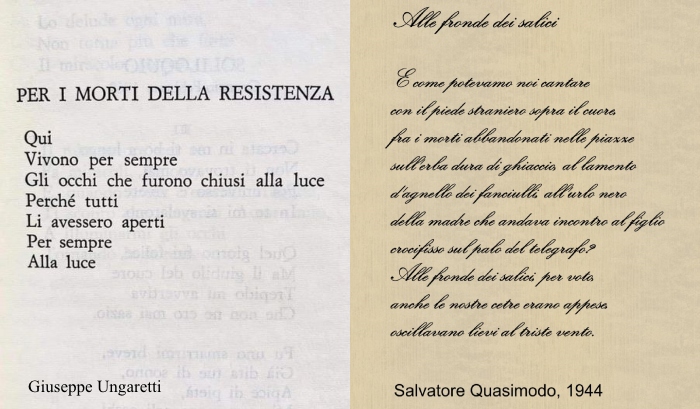April 25: can there be a shared memory of the past without having come to terms with the past?

Michael the Great's Notepad
Nothing new under the sun: once again this year April 25th will be experienced as a derby between opposing fans, fascists against anti-fascists, right against left. The truth is that, more than three quarters of a century after the insurrection that liberated the north of the country, we still don't have a shared memory of it. Perhaps for the simple reason that a shared memory is not possible, at least as long as there are outstanding accounts with the past. Silvio Berlusconi had intuited this in 2009 (by the way: best wishes) in a speech given in Onna, a town symbol of the earthquake in Abruzzo, when he proposed to convert the Liberation Day into a Freedom Day.
An intellectually honest speech, in which the appeal to overcome a historic division did not diminish the rights of the winners and the wrongs of the vanquished. Indeed, for the first time, the Knight unambiguously recognized the decisive contribution of the Resistance to the birth of republican democracy. Nonetheless, it was submerged in a sea of controversy, and someone, like the then governor of Puglia Nichi Vendola, dryly dismissed it as the expression of an "ugly revisionism, smelly and slimy". In my opinion, that speech deserved a more calm welcome, because it invited us to better reflect on a crucial question, namely whether Freedom (with a capital letter) can be considered a value, albeit the highest and most indispensable.
No one brings scandal. I mean that it is, in reality, the condition for this or that freedom (with a small letter) to be given. In this sense, he can decide for good as well as for evil, with sovereign indifference. It can even be reversed in the act that denies or cancels it. In short, freedom -as the Dostoevskij reader of Pascal well knew- comes before good and evil. Be careful, though. Because, as the Russian philosopher Nikolaj Berdjaev wrote, Dostoevsky himself "understood more deeply than anyone else that evil is the child of freedom. But he also understood that without freedom there is no good. Even the good is the child of freedom. This is linked to the mystery of life, the mystery of human destiny".
“Freedom is irrational and therefore can create both good and evil. But to refuse freedom on the grounds that it can produce evil means to produce an even greater evil” (“ The conception of Dostoevsky”, Einaudi, 2002). From this we can deduce that, for the author of "Crime and Punishment", freedom represents the foundation of the human edifice, and that its tenants are willing to suffer all the suffering that the world can inflict in order to feel free. This is true these days for the Ukrainian people, and it is a pity that there are so many Italians – let's face it as it is – who have not understood it. Yet it was precisely the rebellion of a few that contributed to the freedom of all.
This is a machine translation from Italian language of a post published on Start Magazine at the URL https://www.startmag.it/mondo/25-aprile-puo-esistere-una-memoria-condivisa-del-passato-senza-aver-fatto-i-conti-con-il-passato/ on Tue, 25 Apr 2023 05:43:15 +0000.
